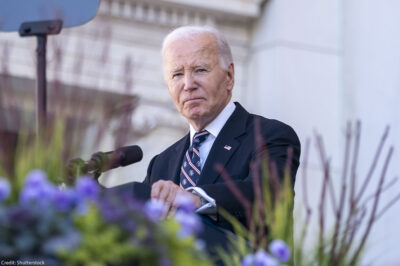Louisiana Man Exonerated After 15 Years on Death Row for Murder
DNA and Other Evidence Proves ACLU Client Damon Thibodeaux Was Wrongly Convicted Based Upon a False Confession
FOR IMMEDIATE RELEASE
CONTACT: (212) 549-2666; media@aclu.org
NEW ORLEANS -- Damon A. Thibodeaux, who has been on death row in Louisiana since 1997, was exonerated today of the murder and rape of a young relative, after DNA and other evidence proved he had not committed the crime.
Thibodeaux walked out of the Louisiana State Penitentiary today after the court dismissed the indictment against him. Jefferson Parish District Attorney Paul Connick Jr. joined the American Civil Liberties Union, the Innocence Project, and other counsel in agreeing to overturn Thibodeaux’s conviction and death sentence.
“The death penalty is a human rights violation in any case, for anyone. But, there can be no stronger argument against capital punishment than the condemnation of a truly innocent man,” said Denise LeBoeuf, director of the ACLU Capital Punishment Project, who has represented Thibodeaux since 1998. “The people of Louisiana should demand a moratorium on executions until they can be assured there are no more miscarriages of justice like the one that occurred in this case.”
Thibodeaux was tried in the killing of his 14-year old step-cousin, Crystal Champagne. Her body was found on July 20, 1996, a day after she had left her apartment to go to a nearby supermarket. Several witnesses were interviewed, including Thibodeaux. After some nine hours of interrogation, he provided an apparent confession to raping and murdering the victim. That confession was virtually the sole basis for his conviction and death sentence in October 1997.
Ten years later, Thibodeaux’s legal team presented Connick with evidence that Thibodeaux was innocent. Both sides then began a rigorous investigation involving DNA and forensic evidence and numerous interviews. The probe confirmed that Thibodeaux’s confession was false in every significant aspect.
In addition, the investigation included a thorough examination of the reasons why Thibodeaux had falsely confessed.
“I’m grateful to my legal team and to Mr. Connick and his people for studying my case and for their commitment to justice,” Thibodeaux said. "I’m looking forward to life as a free man again, but I have great sympathy for the Champagne family that lost their daughter and sister. I sincerely hope that the person who murdered her is found and tried.”
Since 2000, six people have been exonerated from Louisiana’s death row, versus just three executions.
“There’s no question that Mr. Thibodeaux has suffered terribly because of faults in the criminal justice system,” said Barry Scheck, Co-Director of the Innocence Project, which is affiliated with the Benjamin N. Cardozo School of Law. “Hopefully this case can serve as a model to other district attorneys around the country who are interested in developing conviction integrity units to review old cases.”
Thibodeaux’s legal team included LeBoeuf and Caroline Tillman, currently with the Capital Appeals Project in New Orleans, Barry Scheck and Vanessa Potkin of the Innocence Project, and Steve Kaplan and Richard H. Kyle, Jr., of the Fredrikson & Byron law firm in Minneapolis. Assisted by several DNA and world-class forensic scientists, homicide and police interrogation methods experts and private investigators, they obtained evidence demonstrating Thibodeaux was not the murderer, that the victim had not been raped, and that she had also not been murdered in the manner Thibodeaux had described.
“This is a tragic illustration of why law enforcement must record the entire interrogation of any witness or potential suspect in any investigation involving a serious crime,” Kaplan said. “When juries learn that the accused has apparently confessed, they invariably have a difficult time questioning the reliability and truthfulness of the confession.”
Tillman said: “The solitary conditions that Mr. Thibodeaux was forced to live under as a death row inmate were almost more than he could bear at times, but he never gave up hope that one day he would be free.”




